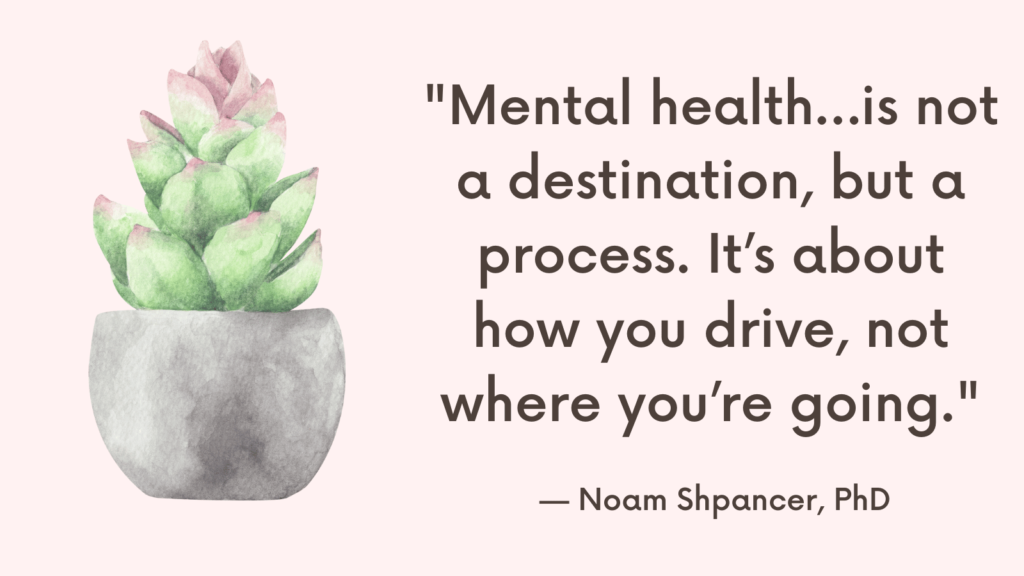This post contains a list of complex PTSD triggers in relationships along with helpful tips to deal with them.
What Is Complex PTSD?
Complex Post-Traumatic Stress Disorder (C-PTSD) is a psychological disorder that can develop in individuals who have experienced prolonged and repeated traumatic events, particularly within the context of interpersonal relationships.
While similar to Post-Traumatic Stress Disorder (PTSD), C-PTSD is characterized by additional symptoms that reflect the impact of chronic trauma on an individual’s sense of self and their ability to regulate emotions and form meaningful relationships.
C-PTSD often arises from experiences such as childhood abuse, neglect, domestic violence, long-term captivity, or forced labor.
These traumatic events typically involve a power imbalance, betrayal of trust, or repeated violation of personal boundaries, leading to a complex pattern of symptoms that persist long after the traumatic events have ended.
Some common symptoms of C-PTSD include:
1. Emotional Dysregulation: Individuals with C-PTSD may struggle to regulate their emotions effectively. They may experience intense emotional reactions, such as anger, fear, or sadness, that seem disproportionate to the current situation. These emotional outbursts can be triggered by reminders of past trauma.
2. Distorted Self-Perception: Chronic and severe trauma can lead to a distorted self-perception and a persistent sense of shame, guilt, or worthlessness. Those with C-PTSD may feel fundamentally flawed or damaged as a result of their traumatic experiences.
3. Difficulties in Relationships: C-PTSD can significantly impair an individual’s ability to form and maintain healthy relationships. Trust issues, fear of intimacy, social withdrawal, and difficulties in establishing boundaries are common challenges faced by those with C-PTSD.
4. Negative Core Beliefs: Individuals with C-PTSD often develop negative core beliefs about themselves, others, and the world. These beliefs may include a sense of helplessness, a lack of trust in others, or a belief that the world is inherently dangerous.
5. Avoidance and Hyperarousal: Like PTSD, C-PTSD can lead to avoidance behaviors (avoiding triggers or reminders of trauma) and hypervigilance (being constantly on guard for potential threats). Individuals may go to great lengths to avoid situations, people, or places associated with their traumatic experiences.
6. Cognitive Impairment: Severe trauma can also affect cognitive functioning, leading to difficulties with memory, attention, and concentration. Individuals with C-PTSD may struggle to focus, make decisions, or retain information.
7. Physical Symptoms: C-PTSD can manifest in physical symptoms such as chronic pain, headaches, gastrointestinal problems, or autoimmune disorders. These physical symptoms may be linked to the impact of chronic stress on the body.
It is important to note that while C-PTSD shares similarities with PTSD, it encompasses a broader range of symptoms and is typically associated with repeated and prolonged trauma.
Related: How to Love Someone with Complex PTSD? Top 9 Suggestions
10 Complex PTSD Triggers In Relationships
One of the challenges faced by individuals with C-PTSD is the occurrence of triggers, which are specific stimuli or situations that remind them of their traumatic past and can elicit intense emotional and physiological reactions.
In the context of relationships, triggers can significantly impact an individual’s ability to connect, trust, and feel safe with their partner.
1. Emotional Neglect
Individuals who have experienced emotional neglect in the past may be triggered by situations where they perceive their partner as emotionally unavailable or dismissive.
This can include instances when their partner fails to respond adequately to their emotional needs or seems uninterested in their experiences.
2. Verbal Abuse
Verbal abuse, including insults, criticisms, or belittling behaviors, can trigger individuals who have suffered emotional or verbal abuse in the past.
They may become hyper-vigilant for signs of hostility or aggression in their current partner’s words or tone of voice.
Related: Covert Verbal Abuse: What Is It & How To Recover From Verbal Abuse
3. Physical Violence
For individuals who have previously experienced physical violence, any form of aggression or raised voices can serve as powerful triggers.
Even minor confrontations or accidental physical contact may elicit intense fear and anxiety.
4. Power Imbalances
Past experiences of power imbalances, such as in abusive relationships, can lead to triggers when individuals perceive similar dynamics in their current relationship.
This can manifest as feelings of helplessness, fear, or the need to please and appease their partner to avoid conflict.
5. Intimacy and Vulnerability
Trauma survivors may have difficulties with intimacy due to fear of vulnerability or betrayal.
Any situation that requires opening up emotionally or sharing personal information may trigger anxiety or withdrawal.
Related: Fear of Engulfment: What It Is & How to Overcome It
6. Abandonment or Rejection
Traumatic experiences involving abandonment or rejection can lead to profound fears of rejection or abandonment in future relationships.
As a result, even minor incidents or perceived indications of disinterest from their partner can be deeply triggering.
7. Control and Boundaries
Survivors of trauma sometimes struggle with issues of control and personal boundaries.
Situations where they perceive their boundaries being crossed or when their partner attempts to control or manipulate them may serve as potent triggers.
Related: +100 Examples of Boundary Violations & How to Deal With It
8. Loss of Autonomy
Trauma survivors often had their autonomy violated during the traumatic events they experienced.
Consequently, situations where they perceive their independence or decision-making abilities being compromised may trigger distress.
9. Intense Emotions
Trauma survivors frequently experience intense and overwhelming emotions that they may struggle to regulate effectively.
In relationships, particularly during conflicts or disagreements, these intense emotions can resurface and lead to emotional dysregulation or dissociation.
10. Sensory Triggers
Trauma memories can be stored in various sensory modalities, and thus, sensory stimuli associated with the traumatic event can serve as powerful triggers.
These stimuli may include certain smells, sounds, sights, or even touch.
It is important to note that triggers can vary from person to person, as the nature and specifics of trauma experiences differ widely.
Each individual’s response to triggers can also vary, ranging from mild discomfort to severe panic or emotional shutdown.
When these triggers arise in relationships, they can disrupt communication, intimacy, and overall relationship satisfaction.
Related: Dysregulated Nervous System: Top 9 Signs & How to Heal

How to Deal with Complex PTSD Triggers in Relationships?
Dealing with complex PTSD triggers in relationships can be challenging, but with effective coping strategies and support, it is possible to navigate these challenges and cultivate healthier relationships.
Here are some suggestions for managing triggers in relationships:
1. Increase Self-Awareness
Understanding your triggers and how they manifest in your body, thoughts, and emotions is a crucial step.
Pay attention to any physical sensations, negative thoughts, or emotional reactions that arise when triggered.
This self-awareness can help you identify patterns and take proactive steps to manage triggers effectively.
2. Communicate Openly
Honest and open communication with your partner about your triggers is essential.
Share your experiences, educate them about complex PTSD, and explain how certain situations or behaviors can trigger you.
Encourage your partner to ask questions and express their understanding and support.
Effective communication can foster empathy, create a safe space, and minimize misunderstandings.
Related: 4 Essential Keys To Effective Communication
3. Set Boundaries
Establishing clear boundaries within your relationship is vital.
Identify your individual needs and communicate them to your partner.
This can include specific actions or situations that trigger you and discussing ways to avoid or navigate them together.
Being assertive about your boundaries allows you to prioritize your well-being while fostering a healthier dynamic in the relationship.
4. Practice Emotional Regulation Techniques
Develop strategies for managing intense emotions that may arise from triggers.
Deep breathing exercises, progressive muscle relaxation, mindfulness meditation, or grounding techniques can help you stay present, manage anxiety, and prevent emotional flooding.
Regular practice of these techniques can enhance emotional regulation skills over time.
Related: Best 8 Mindfulness Exercises For Adults That Will Help You Regulate Your Emotions
5. Engage in Therapy
Seeking professional therapy can significantly support your process of healing and managing triggers in relationships.
Therapists specialized in trauma, such as those trained in trauma-focused therapy or EMDR, can provide guidance, tools, and a safe environment for processing traumatic experiences.
Therapy can also equip you with effective coping strategies and help you develop healthier relationship dynamics.
Related: What Are the 8 Stages of EMDR?
6. Practice Self-Care
Prioritize self-care activities that promote relaxation, self-compassion, and stress reduction.
Engaging in activities you enjoy, such as exercise, creative outlets, spending time in nature, or practicing hobbies, can help regulate emotions and reduce overall stress levels.
Taking care of your physical and mental well-being is essential for managing triggers effectively.
7. Create Safety Plans
Collaborate with your therapist or support system to develop safety plans for moments when triggers occur.
Identify coping mechanisms that work for you, such as retreat to a quiet space, engaging in grounding exercises, or reaching out to a trusted friend for support.
Having a plan in place can help you navigate triggering situations with more confidence and resilience.
8. Practice Mindful Relationship Building
Engage in conscious efforts to build healthy and mutually supportive relationships.
This may involve actively choosing partners who are empathetic, understanding, and respectful of your boundaries.
Focus on building trust gradually and foster an atmosphere of emotional safety within the relationship.
Related: Top 7 Tips On How To Create A Conscious Relationship Using ACT
Conclusion
Recovery from complex PTSD takes time, and setbacks can occur.
Practice self-compassion and understand that healing is a journey with ups and downs.
Celebrate your progress and acknowledge your resilience in managing triggers.



